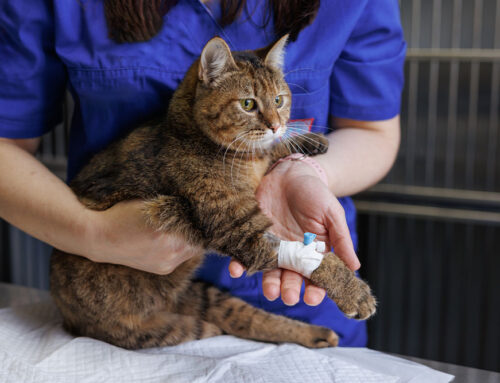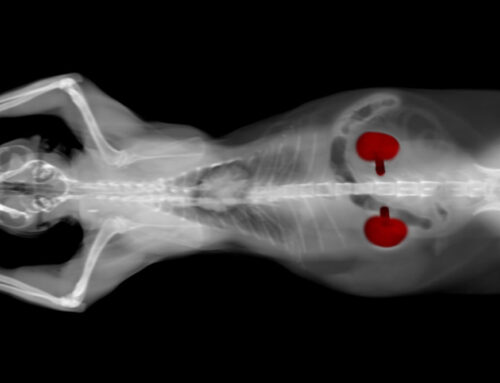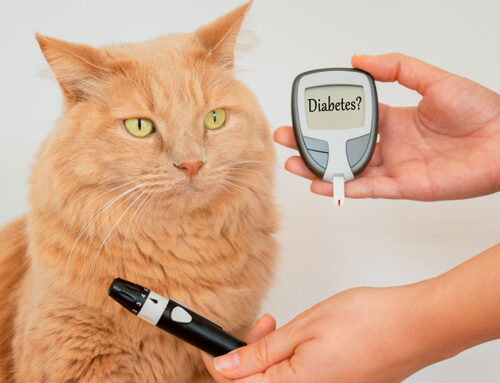Heartworm disease is a health threat with which most pet owners are familiar. However, few pet owners understand this disease’s severity and why every monthly heartworm preventive dose is essential to your pet’s protection. To help ensure you understand heartworm disease’s threats to your pet’s health, our Greenfield Veterinary Clinic team is sharing facts about this life-threatening condition and how you can help prevent your four-legged friend from contracting these parasites.
Heartworms—the path to infection in pets
Most pet owners picture heartworms as heaps of spaghetti-like worms tangled around their furry pal’s heart. While that image is fairly accurate, understanding how those foot-long worms invaded your pet’s body in the first place is important to ensuring your four-legged friend is spared from infection. The heartworm life cycle follows this pattern:
- Mosquito becomes infected — The heartworm life cycle starts when a mosquito takes a meal from an infected animal—most commonly, infected pets or wild animals, such as foxes, wolves, or coyotes. The mosquito ingests young heartworms (i.e., microfilaria) that develop into the infective stage inside the mosquito.
- Infected mosquito bites pet — When an infected mosquito bites your pet, the immature heartworms migrate into the bloodstream, traveling to the blood vessels surrounding your furry pal’s heart and lungs.
- Worms mature and multiply — Over the next six months, the worms mature to adults that are able to reproduce, and can grow to 12-inches in length. An individual worm can survive for five to seven years, and a dog can host up to 250 worms at one time. The growing worm burden eventually impairs the infected dog’s heart and lung function, which can be deadly.
Heartworm disease in dogs and cats
Because they are heartworms’ preferred host, dogs are more likely to contract this life-threatening condition. However, an infected mosquito can transmit heartworms to dogs and cats:
- Heartworms in dogs — Adult heartworms can live for five to seven years inside your dog. If your dog does not receive treatment during that time, the heartworms can cause serious damage to your pup’s cardiovascular system, even causing death. Larval heartworms can also damage your dog’s blood vessels as these parasites travel throughout your four-legged friend’s body. In the early disease stages, your dog may not exhibit illness signs. However, as the condition progresses, signs may include:
- Lethargy
- Inappetence
- Weight loss
- Coughing
- Vomiting
- Tiring easily
- Heartworms in cats — Cats are not heartworms’ preferred host, so the disease follows a different course in your feline friend. The larval heartworms a mosquito transmits to a cat rarely reach adulthood, and the worms cannot reproduce. However, heartworm disease is still extremely dangerous to your feline friend, because immature heartworms—and worms that do reach adulthood—can trigger significant inflammation, damaging your cat’s heart and lungs, or causing sudden death. The parasite causes cats to develop heartworm-associated respiratory disease (HARD), and your kitty’s signs may include:
- Coughing
- Wheezing
- Asthma-like attacks
- Inappetence
- Vomiting
- Weight loss
Heartworm disease treatment for dogs
Heartworm treatment is available for dogs, but the several-month process involves many painful injections given deep into the muscles around their spine. When heartworms die, they can cause life-threatening clots in the lungs. To help prevent these complications, you must severely restrict your dog’s activity level. Unfortunately, the drug that kills adult heartworms in dogs isn’t safe for cats, so no treatment for cats is available.
Annual heartworm testing for pets
Annual heartworm testing is an essential part of your pet’s parasite prevention plan. Heartworm tests detect heartworm antigens in your pet’s blood, signifying an active infection. Testing is recommended for all pets, including those currently receiving a heartworm preventive. Heartworm testing is a simple, accurate, and convenient way to identify an early infection before signs become severe, or to confirm the effectiveness of your pet’s protection.
Heartworm disease prevention for pets

Rather than waiting for heartworms to infect your pet and irreparably damage their heart and lungs, prevent infection by ensuring your furry pal receives monthly preventives year-round. Heartworm preventives work retroactively by attacking the heartworm parasites after transmission occurs. To ensure your pet’s complete protection, you must administer their heartworm preventives consistently. If you miss giving your pet one dose, the parasites can mature to their next life stage, and at that point, the growing worms must be treated aggressively. Preventives come in many forms, including:
- Monthly oral medications
- Monthly topical medications
- Six- or 12-month injectable medications administered by our veterinarian
Protect your pet from heartworm disease by ensuring their heartworm preventive is administered year-round. If your pet is due for their heartworm test or you need help choosing an effective preventive, schedule an appointment with our Greenfield Veterinary Clinic team.







Leave A Comment